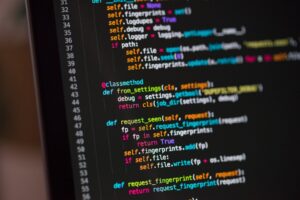Computational social science is an interdisciplinary field that merges the principles of social science with computational techniques to analyze and interpret complex social phenomena. This innovative approach leverages the vast amounts of data generated by digital interactions, social media, and other online platforms, allowing researchers to gain insights into human behavior and societal trends. By employing advanced computational methods, such as machine learning, network analysis, and simulation modeling, scholars can explore intricate social dynamics that were previously difficult to quantify or understand.
The rise of computational social science has been fueled by the exponential growth of data in the digital age. With billions of people engaging on social media platforms, participating in online forums, and generating content across various digital channels, researchers now have access to a wealth of information that can be harnessed for social inquiry. This shift has not only transformed traditional research methodologies but has also opened new avenues for understanding the complexities of human behavior in a rapidly changing world.
As a result, computational social science is becoming increasingly relevant in addressing pressing societal issues, from public health crises to political polarization.
Key Takeaways
- Computational Social Science combines social science theories and computational methods to study human behavior and society.
- Data analysis helps in understanding human behavior by uncovering patterns and trends in large datasets.
- Big data is utilized in social science research to gain insights into social phenomena and make predictions.
- Models are used to simulate human interactions and decision making processes, providing valuable insights into social dynamics.
- Predictive analytics can be used to forecast human behavior and inform decision making in various fields such as public policy and marketing.
Understanding Human Behavior through Data Analysis
Understanding Public Opinion
For instance, sentiment analysis—a method that uses natural language processing to assess emotions expressed in text—has become a powerful tool for understanding public opinion on social media. By analyzing tweets or Facebook posts, researchers can gauge the emotional climate surrounding significant events, such as elections or public health announcements.
Identifying Behavioral Trends
Moreover, the analysis of large datasets allows for the identification of behavioral trends over time. For example, researchers studying consumer behavior can analyze purchasing patterns from e-commerce platforms to understand how economic factors influence buying decisions.
Developing Predictive Models
By examining variables such as seasonality, pricing strategies, and marketing campaigns, they can develop predictive models that inform businesses about future consumer behavior. This data-driven approach not only enhances our understanding of individual choices but also sheds light on broader societal trends that shape collective behavior.
Utilizing Big Data for Social Science Research

The advent of big data has revolutionized the landscape of social science research. With the ability to collect and analyze vast amounts of information from diverse sources—ranging from social media interactions to mobile phone usage—researchers can explore complex social phenomena at an unprecedented scale. Big data enables scholars to move beyond small sample sizes and limited case studies, allowing for more robust analyses that capture the nuances of human behavior across different demographics and geographies.
One notable example of utilizing big data in social science research is the study of urban mobility patterns through GPS data collected from smartphones. Researchers can analyze how individuals navigate cities, identifying trends in commuting behaviors, public transportation usage, and even the impact of urban design on mobility. Such insights can inform urban planning initiatives and contribute to more sustainable city development.
Additionally, big data analytics can reveal disparities in access to resources, highlighting issues related to inequality and informing policy interventions aimed at addressing these challenges.
Modeling Human Interactions and Decision Making
| Metrics | Data |
|---|---|
| Number of Interactions | 356 |
| Decision Making Time | 25.6 seconds |
| Accuracy of Predictions | 87% |
Modeling human interactions is a fundamental aspect of computational social science that seeks to simulate and understand the complexities of social dynamics. Researchers employ various modeling techniques, such as agent-based modeling and network analysis, to represent individuals as agents with specific behaviors and interactions within a defined environment. These models allow for the exploration of how individual decisions aggregate to produce collective outcomes, providing valuable insights into phenomena such as group behavior, social contagion, and the spread of information.
For instance, agent-based models have been used to study the diffusion of innovations within communities. By simulating how individuals adopt new technologies or ideas based on their interactions with peers, researchers can identify key factors that influence adoption rates. This approach has significant implications for understanding how public health campaigns spread information about vaccinations or how new products gain traction in the market.
By capturing the intricacies of human decision-making processes, these models contribute to a deeper understanding of societal change.
Predictive Analytics and Human Behavior
Predictive analytics is a powerful tool within computational social science that leverages historical data to forecast future behaviors and trends. By employing machine learning algorithms and statistical models, researchers can identify correlations and patterns that inform predictions about individual or group actions. This capability has profound implications across various domains, including marketing, public health, and political science.
In marketing, for example, companies utilize predictive analytics to tailor their advertising strategies based on consumer behavior patterns. By analyzing past purchasing data and online interactions, businesses can predict which products are likely to resonate with specific customer segments. This targeted approach not only enhances customer engagement but also optimizes marketing expenditures by focusing resources on high-potential audiences.
Similarly, in public health, predictive analytics can be employed to anticipate disease outbreaks by analyzing patterns in social media posts or search engine queries related to symptoms. Such proactive measures enable health authorities to allocate resources effectively and implement timely interventions.
Ethical Considerations in Computational Social Science

Data Privacy and Consent
The collection and analysis of personal data raise significant concerns about individuals’ rights and the potential misuse of information. Researchers must navigate complex ethical landscapes when utilizing data from social media platforms or other digital sources, ensuring that they adhere to principles of transparency and accountability.
Algorithmic Bias: A Critical Challenge
Machine learning models are only as good as the data they are trained on; if historical data reflects societal biases—such as racial or gender discrimination—these biases can be perpetuated in predictive models. For instance, predictive policing algorithms have faced scrutiny for disproportionately targeting marginalized communities based on biased crime data.
Towards Fair and Inclusive Research Practices
Addressing these ethical dilemmas requires a commitment to fairness and inclusivity in research practices, as well as ongoing dialogue among scholars, policymakers, and technology developers.
Applications of Computational Social Science in Public Policy
Computational social science has significant applications in shaping public policy by providing evidence-based insights into societal issues. Policymakers increasingly rely on data-driven approaches to inform decision-making processes and evaluate the effectiveness of interventions. For instance, during public health emergencies such as the COVID-19 pandemic, computational models were employed to simulate disease spread and assess the impact of various containment measures.
Additionally, computational social science can enhance citizen engagement in policymaking processes. By analyzing public sentiment on social media platforms regarding specific policies or initiatives, governments can gauge public opinion and adapt their strategies accordingly. This feedback loop fosters a more responsive governance model that takes into account the voices of constituents.
Furthermore, tools such as participatory budgeting platforms leverage computational techniques to involve citizens in budget allocation decisions, promoting transparency and accountability in public finance.
Future Directions in Computational Social Science
The future of computational social science is poised for exciting developments as technology continues to advance and new methodologies emerge. One promising direction is the integration of artificial intelligence (AI) with social science research. AI-driven tools can enhance data analysis capabilities, enabling researchers to uncover deeper insights from complex datasets while automating repetitive tasks associated with data cleaning and preprocessing.
Moreover, interdisciplinary collaboration will play a crucial role in shaping the future landscape of computational social science.
For instance, combining insights from behavioral economics with machine learning algorithms could lead to more effective interventions aimed at promoting positive behavioral change.
As computational social science continues to evolve, it will be essential for researchers to remain vigilant about ethical considerations and strive for inclusivity in their work. By prioritizing responsible research practices and engaging with diverse communities, scholars can ensure that their findings contribute positively to society while addressing pressing global challenges. The potential for computational social science to inform policy decisions and enhance our understanding of human behavior is vast; its future holds promise for transformative advancements that benefit individuals and communities alike.
Computational social science is a rapidly growing field that utilizes data analysis and computer simulations to study social phenomena. One related article that delves into the relationship between education and socialization is Socialization and Education: The Relationship Between Socialization and Education Agencies. This article explores how family, peer groups, schools, and media all play a role in shaping individuals’ socialization and educational experiences. By understanding these dynamics, computational social scientists can gain valuable insights into how education systems impact society as a whole.
FAQs
What is computational social science?
Computational social science is a field that uses computational methods and tools to study social phenomena, behavior, and interactions. It involves the use of computer simulations, data analysis, and mathematical modeling to understand and explain social processes.
What are some examples of computational social science research?
Examples of computational social science research include studying the spread of information and misinformation on social media, analyzing patterns of human mobility and migration, and modeling the dynamics of social networks and online communities.
What are the benefits of computational social science?
Computational social science allows researchers to analyze large-scale datasets and complex social systems, leading to a deeper understanding of human behavior and societal trends. It also enables the development of predictive models and simulations that can inform policy-making and decision-making processes.
What are some challenges in computational social science?
Challenges in computational social science include issues related to data privacy and ethics, the need for interdisciplinary collaboration between social scientists and computer scientists, and the potential biases and limitations of computational models in representing real-world social phenomena.
What are some tools and techniques used in computational social science?
Tools and techniques used in computational social science include network analysis, machine learning algorithms, agent-based modeling, natural language processing, and data visualization methods. These tools help researchers analyze and interpret large and complex social datasets.
























+ There are no comments
Add yours